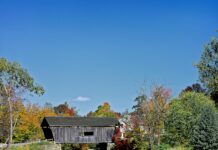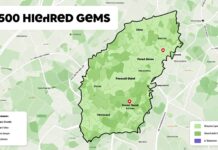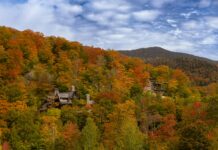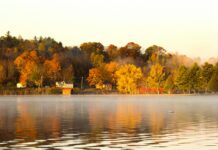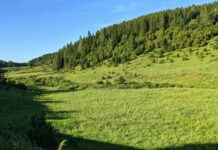Are you dreaming of owning a piece of paradise in the beautiful Green Mountain State? Land for sale Vermont offers an incredible opportunity to discover hidden gems and prime properties that cater to every type of buyer — from peaceful rural retreats to promising investment lands. Whether you’re searching for affordable Vermont land for sale, scenic plots with mountain views, or Vermont acreage for sale with water access, this guide will help you unlock the secrets to finding your perfect spot in this charming New England state. Imagine waking up to breathtaking landscapes, crisp fresh air, and endless outdoor adventures right outside your door. Sounds amazing, right?
The booming real estate market in Vermont has sparked a surge in interest for vacant land for sale in Vermont, making now the perfect time to explore available options. But did you know there are still many under-the-radar properties waiting to be discovered? From prime Vermont farmland for sale to secluded wooded lots ideal for building your dream cabin, the possibilities are endless. Buyers are increasingly drawn to Vermont’s unique blend of rustic beauty and modern conveniences — but navigating the market can be tricky without insider tips and knowledge about trending locations.
So, how do you find these hidden gems and secure the best deals on land for sale in Vermont? In this article, we’ll dive into the top areas to watch, key factors to consider, and expert advice on making your Vermont land purchase a success. Ready to uncover the charm and potential of Vermont’s real estate landscape? Keep reading and prepare to be inspired by the endless opportunities waiting for you in the heart of New England!
Top 7 Untapped Land For Sale Vermont Locations You Must Explore in 2024
Vermont, with its rolling hills, dense forests, and charming small towns, has always been a magnet for those seeking land for sale Vermont offers. But, in 2024, there are many lesser-known places where untapped land opportunities are waiting for buyers and investors who know where to look. If you’re searching for land for sale in Vermont, this article will guide you through the top 7 untapped land locations you must explore this year. These spots combine natural beauty, potential growth, and affordability, making them prime properties that often get overlooked.
Why Consider Untapped Land in Vermont?
Vermont is famous for its picturesque landscapes and outdoor lifestyle. Most people think of well-known spots like Stowe or Burlington when they consider buying land here. However, these popular areas have higher prices and limited availability. Untapped locations, on the other hand, offer a chance to own a piece of Vermont’s authentic nature and maybe even invest in future development.
- Lower land prices compared to popular tourist towns
- Greater privacy and seclusion
- Opportunities for farming, forestry, or recreational use
- Potential for appreciation as infrastructure improves
These hidden gems are not just cheap plots; they often are rich in history and natural resources, which can make owning them special and rewarding.
Top 7 Untapped Land for Sale Vermont Locations You Should Explore in 2024
Here is a curated list of seven locations where you can find untapped land for sale in Vermont. Each area brings its own unique qualities and reasons why it might be the perfect spot for you.
- Windsor County – Hartford and Sharon Areas
Windsor County has been quietly growing, but many parcels of land remain untouched. The Hartford and Sharon areas offer rolling farmland, woodland, and riverfront properties. Historically, Windsor County was one of the first places settled in Vermont, so you can find some land with old stone walls and remnants of colonial farming.
- Average land price: $3,000 – $5,000 per acre
- Ideal for: small farms, cabins, hobby farms
- Nearby amenities: local markets, schools, and easy access to Interstate 89
- Essex County – Island Pond Region
Far up north, Essex County is Vermont’s least populated county, meaning lots of wide-open spaces. The Island Pond region is great if you want privacy and lots of wildlife. Some parcels have lakes or ponds, perfect for fishing or kayaking. The land here can be rugged but very rewarding for those who seek adventure.
- Average land price: $1,500 – $3,000 per acre
- Ideal for: hunting land, recreational cabins, conservation
- Historical note: This area was known for logging in the 19th century
- Orange County – Chelsea and Tunbridge
Orange County is a mix of farmland and forest. Chelsea and Tunbridge towns offer affordable acreage with charming rural settings. The area has a strong agricultural tradition, and many properties include barns and outbuildings. This county is known for its maple syrup production and scenic byways.
- Average land price: $2,500 – $4,000 per acre
- Ideal for: organic farming, maple syrup operations, weekend retreats
- Fun fact: Tunbridge hosts one of the oldest horse racing fairs in the nation
- Caledonia County – St. Johnsbury Outskirts
St. Johnsbury is a small town that acts as a hub in Caledonia County, but the outskirts hold many undeveloped parcels. The land here tends to be gently sloping, with access to rivers and trails. Caledonia County has a rich railroad history and several historic districts worth exploring.
- Average land price: $3,000 – $4,500 per acre
- Ideal for: residential development, small farming, eco-tourism
- Nearby: St. Johnsbury Academy and local museums
- Bennington County – Shaftsbury and Arlington
Bennington County is well-known for its arts scene, but the towns Shaftsbury and Arlington have many undeveloped woodlands and pastures. The area has a mix of hills and valleys, offering great views and privacy. This region also has strong community events and good access to Vermont’s southern border.
- Average land price: $3,500 – $6,000 per acre
- Ideal for: vacation homes, horse farms, artist retreats
- Cultural note: Bennington is famous for the Bennington Battle Monument commemorating the Revolutionary War
- Lamoille County – Johnson and Hyde Park
Lamoille County is becoming popular but still has overlooked parcels especially around Johnson and Hyde Park. These towns combine access to the Green Mountains with community spirit. Land for sale here often includes forested acreage that could be suitable for timber or building a secluded home.
- Average land price: $3,000 – $5,000 per acre
How to Find Affordable and Prime Land For Sale Vermont: Insider Tips Revealed
Finding affordable and prime land for sale in Vermont can be like searching for a needle in a haystack. Vermont, known for its lush green landscapes, charming small towns, and outdoor recreational opportunities, attract many buyers looking for the perfect plot to build a home, start a farm, or invest. But how do you find a great piece of land without breaking the bank or settling for less? This article share insider tips, hidden gems, and practical advice to help you discover the best land for sale in Vermont.
Why Vermont Land Is So Special
Vermont’s land is famous for its natural beauty and rural charm. The state is mostly covered in forests, hills, and mountains, with a climate that supports maple syrup production and organic farming. Over 75% of Vermont is forested, making land here a precious commodity for those who love nature. Historically, land in Vermont was used for small family farms and logging, but with changing economies, many parcels have become available. However, not all land is equal—some parcels hold more value because of location, accessibility, or natural resources.
Where To Look For Affordable Land In Vermont
Finding affordable land in Vermont means knowing where to look. Prices vary widely by county, town, and proximity to amenities. For example:
- Southern Vermont tends to have higher prices due to its closeness to Massachusetts and popular tourist spots like Manchester.
- Northern Vermont offers more affordable options but may be farther from major highways and services.
- Central Vermont strikes a balance with moderate prices and access to towns like Barre and Montpelier.
Here’s a quick list of popular counties and their characteristics:
| County | Average Land Price per Acre | Notable Features |
|---|---|---|
| Bennington | $5,000 – $8,000 | Rolling hills, close to Massachusetts |
| Orleans | $3,000 – $6,000 | Lakes, forests, outdoor recreation |
| Washington | $4,000 – $7,000 | Near state capital, mixed rural and suburban |
| Windham | $5,000 – $9,000 | Popular for second homes, scenic views |
| Caledonia | $3,500 – $6,500 | Quiet, forested, affordable |
Prices are approximate and can fluctuate depending on market conditions and parcel specifics.
Insider Tips For Spotting Hidden Gems
Many buyers focus only on online listings or popular real estate websites, but you miss a lot if you don’t dig deeper. Here’s how you can find hidden gems:
- Talk to Local Realtors: Agents specializing in rural land often know about properties not yet listed online or coming to market soon.
- Drive Around Desired Areas: Sometimes, you find land for sale signs or owners willing to sell who haven’t advertised.
- Check Public Records: Town clerk offices can provide information on land parcels, ownership changes, or tax delinquent properties.
- Network with Locals: Farmers, loggers, and longtime residents often know about land that might be available.
- Explore Auctions and Foreclosures: Occasionally, land is sold at auctions for below market value, but it requires due diligence.
For example, in a small town like Hardwick, you might find parcels previously used as small farms that owners want to sell quickly due to retirement or relocation.
What To Consider When Buying Land In Vermont
Buying land is not only about price but also about what you want to do with it. Before buying, consider:
- Zoning and Land Use Restrictions: Vermont towns have different rules about building, farming, or timber harvesting. Make sure the land suits your plans.
- Access and Road Maintenance: Some properties have private roads or right-of-way issues that can complicate access.
- Utilities and Infrastructure: Many rural lands don’t have water, sewer, or electricity connections, which can add to development costs.
- Topography and Soil Quality: If you want to farm or build, check if the land is flat enough or has good soil drainage.
- Environmental Protections: Vermont has programs to preserve farmland and forests; some lands might have conservation easements limiting use.
An example would be a parcel in Chittenden County that looks perfect but is restricted from building due to wetlands protections.
Practical Ways To Compare Land Options
When comparing land parcels, create a simple checklist or table to keep track of key factors. Here’s an example:
| Parcel ID | Location | Size (Acres) | Price | Zoning | Utilities Available | Access Type | Notes |
|---|---|---|---|---|---|---|---|
| 101 | Barre | 10 | $50,000 | Residential | None | Shared private road | Needs well and septic |
| 202 | Stowe | 5 | $80,000 | Mixed Use | Electricity |
Discover Vermont’s Hidden Gems: Unique Rural Land For Sale Opportunities
Discover Vermont’s Hidden Gems: Unique Rural Land For Sale Opportunities
If you ever thought about buying land in a place where nature’s beauty meets quiet rural life, Vermont is the place to looking. Land for sale Vermont has been attracting many who want to escape the busy city life and embrace the calmness of New England’s countryside. But not everyone knows about the hidden gems—those unique parcels of rural land that offer more than just space. These properties come with rich history, breathtaking views, and opportunities for farming, recreation, or even starting a small business. This article explores some of those lesser-known spots and why you should consider them if you are looking for land for sale Vermont.
Why Vermont Is Special For Land Buyers
Vermont is unlike many other states because it still holds much of its rural charm and natural landscapes. It has mountains, forests, lakes, and farmland, making it perfect for a variety of land uses. Many buyers looking for land in Vermont want privacy, outdoor activities like hiking or snowmobiling, or a place to build a vacation home.
Some facts about Vermont that make it attractive for land investment:
- Vermont is the second least populous state in the US, so land is less crowded.
- It has over 4,000 lakes and ponds, providing water access on many properties.
- The state has a year-round outdoor recreation economy, including skiing, fishing, and hiking.
- Historic towns and villages add cultural value to rural land areas.
The rural land for sale Vermont market often includes parcels ranging from small lots under 5 acres perfect for tiny homes, to large farms and timberland over 100 acres.
Exploring Unique Rural Land Opportunities
Not all land in Vermont is the same. Some properties are just empty fields, but others have features that make them true hidden gems. Here’s a list of the types of unique land you might find:
- Wooded parcels with mature trees: Great for timber investment or privacy.
- Land near protected parks: Offers scenic views and access to trails.
- Farmland with existing infrastructure: Includes barns, fences, or irrigation systems.
- Waterfront lots on lakes or rivers: Rare and highly sought-after for recreation.
- Historic properties with old farmhouses or barns: Perfect for restoration projects.
Each of these types can cater to different buyers. For example, a family wanting to start a hobby farm might prefer existing farmland, while an artist looking for solitude might choose a wooded parcel near a state forest.
Land For Sale Vermont: Discover Hidden Gems And Prime Properties
When hunting for land for sale Vermont, many people focus on prime properties near well-known towns like Stowe, Middlebury, or Burlington. But the real treasures can be found in lesser-known counties such as Essex, Orleans, or Caledonia. These areas often have land priced below the state average and come with the benefits of quiet rural living.
Here is a comparison between prime town areas and more remote counties in Vermont:
| Feature | Prime Town Areas | Remote Counties |
|---|---|---|
| Average Acreage | 1-10 acres | 20-100+ acres |
| Price per Acre | $10,000 – $25,000 | $1,500 – $7,000 |
| Access to Amenities | High (shops, schools, hospitals) | Low (limited services) |
| Population Density | Higher | Very low |
| Potential Land Uses | Residential, commercial | Farming, timber, recreation |
| Scenic Views | Moderate | Often spectacular |
This table shows why some buyers choose hidden gems over prime properties. Lower cost per acre allows future expansion, and natural beauty often exceeds what you find closer to towns.
Practical Examples Of Unique Land For Sale In Vermont
Imagine a buyer named Sarah who is looking for a quiet place to build a cabin. She finds a 15-acre parcel near Lake Willoughby in Orleans County. The land has a gentle slope, mixed hardwood forest, and a small creek running through it. This property is perfect for Sarah because:
- It is secluded but still within driving distance from small towns.
- It offers fishing and kayaking opportunities on the nearby lake.
- The soil quality is good enough to plant a vegetable garden.
- There are no neighbors in immediate sight, ensuring peace.
On the other hand, John wants to buy larger acreage to start a small organic farm. He finds a 75-acre plot in Caledonia County with a barn and fenced pastures. The land is already set up for livestock grazing, and the nearby road access is suitable for farm equipment. John’s choice shows how different hidden gems fit different needs.
Tips For Buyers Looking For Land In Vermont
Purchasing rural land can be tricky, especially if you are unfamiliar with Vermont’s unique landscape and regulations. Here are some
Why Vermont Land For Sale is a Smart Investment for Nature Lovers and Developers
Vermont land for sale has been attracting attention from both nature lovers and developers alike, and it’s easy to see why. The Green Mountain State offers some of the most beautiful landscapes in New England, combining vast forests, rolling hills, and pristine waterways. For those looking to invest, Vermont land is not just a purchase—it’s an opportunity to connect with nature and benefit from a growing real estate market. Whether you are seeking hidden gems or prime properties, land for sale Vermont offers a diverse range that suits many different needs and dreams.
Why Vermont Land Appeals to Nature Enthusiasts
Vermont is famous for its commitment to preserving natural beauty and open spaces. Nature lovers will find the state’s land offerings attractive because many parcels are tucked away in areas with minimal development and abundant wildlife. The state has more than 75% forest coverage, making it a haven for hiking, bird watching, fishing, and other outdoor activities.
Some key points that make Vermont land a smart investment for nature lovers:
- Access to vast trails and protected state parks like Camel’s Hump and Green Mountain National Forest.
- Opportunities for sustainable forestry and organic farming.
- Land parcels near lakes and rivers suitable for recreational use.
- The peaceful rural setting ideal for vacation cabins or retirement homes.
Owning land in Vermont allows people to experience the famous four seasons in all their glory—from vibrant autumn foliage to snowy winters perfect for skiing. This connection to nature is hard to find elsewhere, especially close to major cities in the Northeast.
Developers Find Opportunity in Vermont’s Real Estate Market
While Vermont is known for its natural beauty, it also presents unique chances for developers. The state’s population growth, though modest, has steadily increased demand for housing and commercial spaces in recent years. Developers looking at land for sale Vermont can find parcels that are ripe for development but still maintain the charm and appeal that the state is known for.
Reasons developers consider Vermont land a wise choice include:
- Increasing demand for vacation rentals and second homes.
- Growing interest in eco-friendly and sustainable construction projects.
- State incentives for renewable energy and green building practices.
- Availability of large tracts suitable for planned communities or resorts.
Vermont’s zoning laws tend to be strict, which some might see as a challenge, but this also ensures that developments are thoughtful and preserve the environment. It means projects that do go through are more likely to retain long-term value and community support.
Discover Hidden Gems and Prime Properties in Vermont
When searching land for sale Vermont, it’s important to know that not all properties are the same. Some are well-known parcels near popular towns, while others are “hidden gems” that offer privacy, unique terrain, or rare features like waterfalls or mountain views.
To help you understand what to look for, here is a rough outline of typical property types and what makes them special:
Wooded Lots
- Usually more affordable
- Great for hunting, camping, or building secluded cabins
- Often located farther from main roads, offering privacy
Farmland
- Suitable for agriculture or equestrian purposes
- Can be leased or developed into agritourism businesses
- Fertile soils in the Champlain Valley region
Waterfront Properties
- High demand for lakeside living or fishing access
- Limited supply increases property value
- Perfect for vacation homes or resorts
Mountain View Land
- Offers scenic vistas and potential for hiking trails
- Popular for luxury homes and retreats
- Often located near ski resorts like Stowe or Killington
Mixed-Use Parcels
- Combines residential, commercial, or recreational uses
- Ideal for innovative developers or community projects
- May require careful zoning and planning approval
Comparing Vermont Land to Other New England States
Many buyers look at Vermont land alongside properties in neighboring states like New Hampshire, Maine, or Massachusetts. Vermont stands out because:
- It has a lower population density, meaning less congestion and more open space.
- Property taxes can be lower depending on the town, especially compared to Massachusetts.
- Vermont’s natural preservation laws are stronger, ensuring long-term protection of landscapes.
- The state’s economy is diversified with agriculture, tourism, and small manufacturing, creating a stable real estate market.
Here’s a simple comparison table for quick reference:
| Feature | Vermont | New Hampshire | Maine | Massachusetts |
|---|---|---|---|---|
| Average Land Price | Moderate | Slightly Higher | Lower to Moderate | High |
| Forest Coverage | 75%+ | About 80% | 89% | 60% |
| Population Density | Low | Moderate | Low | High |
| Property Tax Rates | Moderate | Low |
Step-by-Step Guide to Buying Land For Sale Vermont: What Every Buyer Should Know
Buying land in Vermont can be an exciting adventure, but it also come with its own set of challenges that every buyer should be aware of. If you’re looking for “land for sale Vermont,” and wondering where to start or how to find the best properties, this guide is gonna help you step-by-step. Vermont’s natural beauty, from rolling hills to pristine lakes, make it a great place for those wanting to build a dream home, start a farm, or just invest in real estate. However, buying land isn’t as simple as picking a spot and signing papers. There’s much more to consider and understand before making the big decision.
Why Vermont? A Quick Look At The Land Market
Vermont has long been known for its rural charm and vibrant small towns. The state’s land market reflects this character with a mix of wooded parcels, farmland, and some prime properties near popular towns like Burlington, Stowe, and Middlebury. Historically, Vermont’s land prices have been more affordable compared to neighboring Massachusetts or New Hampshire, but recent years show a steady rise due to increased demand. For buyers looking “land for sale Vermont,” this means opportunities exist but proper research is crucial.
Some historical context: Vermont’s economy traditionally relied on agriculture and forestry, which shaped how the land is used today. Many parcels still maintain agricultural zoning, which impacts what buyers can do with their property. This makes understanding zoning laws and land use restrictions important for prospective buyers.
Step-by-Step Guide To Buying Land For Sale Vermont
Buying land involves more steps than buying a house. Here’s a practical outline to guide you:
Define Your Purpose and Budget
- Are you buying to build a home, farm, or just for investment?
- How much you can afford including hidden costs like taxes, surveys, and permits?
Research Areas and Types of Land
- Decide if you want rural, lakeside, or near town.
- Look into zoning laws (residential, agricultural, commercial).
- Consider access to utilities like water, electricity, and internet.
Find a Local Real Estate Agent Specializing in Land
- Local agents know hidden gems.
- They can help with negotiations and legal requirements.
Visit Properties and Assess Them Thoroughly
- Check for topography, soil quality, and accessibility.
- Watch for environmental issues like wetlands or protected lands.
Get a Land Survey Done
- Verify boundaries and acreage.
- Identify any easements or rights of way.
Review Title and Legal Documents
- Ensure there’s a clear title.
- Check for liens, back taxes, or restrictions.
Secure Financing If Needed
- Land loans differ from home mortgages; often higher down payments are required.
- Explore different lenders and loan options.
Make an Offer and Negotiate Terms
- Be ready to negotiate based on land condition and market trends.
Close the Deal
- Final paperwork, inspections, and transfer of ownership.
Discover Hidden Gems and Prime Properties in Vermont
Many buyers focus on well-known areas like Burlington or the ski resorts around Stowe, but Vermont has many lesser-known parcels that provide great value and potential. Some hidden gems include:
- The Northeast Kingdom: A large rural area with affordable land, great for buyers looking for peace and wildlife.
- Southern Vermont: Towns like Brattleboro and Bennington offer land with proximity to cultural attractions.
- Lake Champlain Shoreline: Prime waterfront properties, though usually pricier, they retain value well.
Here’s a quick comparison chart to help you understand these regions:
| Region | Average Price per Acre | Land Type | Accessibility | Popular Use |
|---|---|---|---|---|
| Northeast Kingdom | $1,500 – $3,000 | Forest, Farmland | Mostly rural roads | Hunting, Farming, Recreation |
| Southern Vermont | $3,000 – $6,000 | Mix of farmland & forest | Good highways | Residential, Agriculture |
| Lake Champlain Shoreline | $10,000+ | Waterfront, Residential | Easy access, developed | Vacation homes, Investments |
Important Things Every Buyer Should Know
When buying land in Vermont, some practical considerations sometimes overlooked are:
- Septic and Well Requirements: Many rural parcels don’t have municipal water or sewer, so you must install septic systems and wells. These can be expensive and require permits.
- Seasonal Access Issues: Some lands are hard to reach in winter due to snow or poor road maintenance.
- Environmental Regulations: Vermont has strong conservation laws. Certain areas may restrict development to protect wildlife habitats or water quality.
- Property Taxes: Land taxes vary widely depending
Conclusion
In summary, purchasing land for sale in Vermont offers a unique opportunity to embrace the state’s stunning natural beauty, vibrant communities, and diverse recreational activities. Whether you are seeking a peaceful rural retreat, a spot for outdoor adventures, or a smart investment, Vermont’s land market provides a range of options to suit different needs and budgets. From fertile farmland to wooded parcels and lakeside plots, careful consideration of location, zoning regulations, and future development potential is essential for making an informed decision. Working with experienced local real estate agents can further streamline the process and ensure you find the perfect piece of land. If you’re ready to explore the possibilities and secure your own slice of Vermont’s picturesque landscape, now is the ideal time to start your search and turn your vision into reality. Don’t miss out on the chance to invest in one of the most charming and serene regions in the Northeast.


